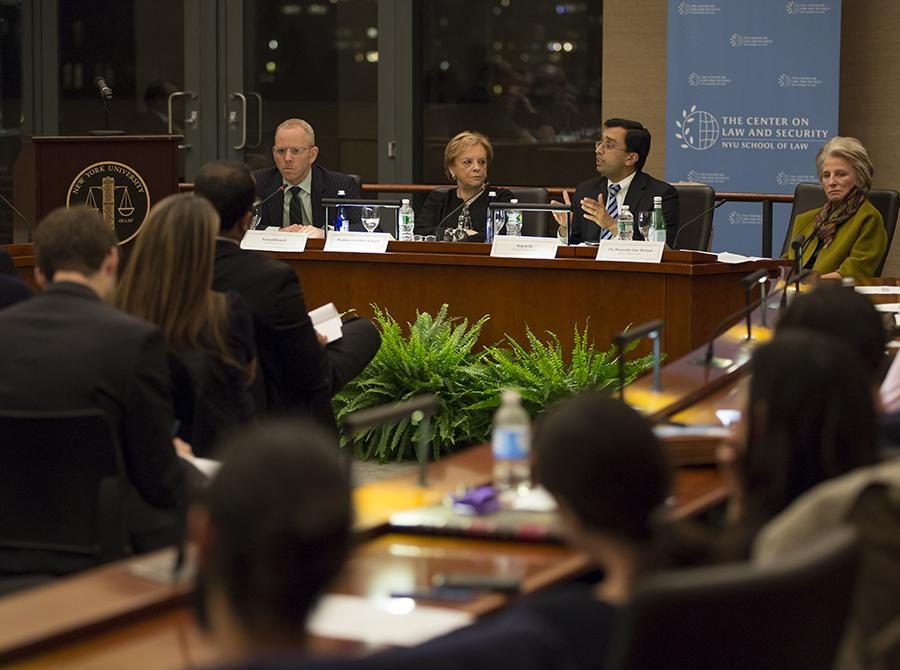Panelists explain US information secrecy
Samuel Rascoff, Dorit Beinisch, Rajesh De, and Jane Harman, left to right, speak at Intelligence Oversight: A Global View that was held at NYU’s Lester Pollack Colloquium Room in Furman Hall.
November 4, 2014
The modern security state, Edward Snowden’s leaks and the National Security Agency have been in the public sphere for over a year, and the debate about secrecy continued with three members of the intelligence community on Nov. 3. The panelists discussed the need to withhold some information when dealing with the public at the event hosted by NYU School of Law’s Center on Law and Security.
Jane Harman, a former U.S. representative and former member of the House Intelligence Committee, said even though Snowden was a detriment to national security, he initiated a much-needed conversation about intelligence.
“If I had to say one nice thing about Edward Snowden, and this is the only nice thing I have to say, he has stimulated a debate that we should have had a long time ago,” Harman said.
General Counsel of the NSA Rajesh De said Snowden changed the public view of the NSA, but he thought the public would not be surprised if it were able to see what the NSA was doing.
“I would hope that generally the public would not be surprised by what we do, maybe the details and so forth,” De said. “I think there are a couple of changes post-Snowden that are important. There is a sense that we need to provide more guidance to the public with more broad outlines of what we are doing.”
With the extreme confidentiality of the NSA, De said it is important to have an open dialogue with the public.
“Public discussion is a good thing,” De said. “I believe in my core that what Snowden did was awful. It is possible to think both of those things at the same time.”
Dorit Beinisch, former Chief Justice of Israel, said in Israel, like in every country, officials dealing with confidential information have good intentions.
“We do our best,” Beinisch said. “We look into the confidential material and make the best decision that we can under all circumstances.”
Jeff Smith, a second-year student in NYU Law, said he felt the conversation demonstrated that the United States is trying to restore the integrity of the intelligence community after 9/11.
“I think that intelligence oversight is extremely important for the health of our democracy,” Smith said. “We went through a dark period after 9/11 in terms of intelligence oversight, and it’s good to see that the balance is shifting back toward where it was before 9/11 with a strong intelligence community that preserves civil liberties.”
Zachary Goldman, executive director of the Center on Law and Security, said the panel should serve as a foundation for more debate on intelligence oversight.
“It was a very important discussion about a very important set of issues,” Goldman said. “Moreover I hope that it is only the beginning of the conversation and very much not the end.”
A version of this article appeared in the Tuesday, Nov. 4 print edition. Email Alanna Bayarin at [email protected].























































































































































